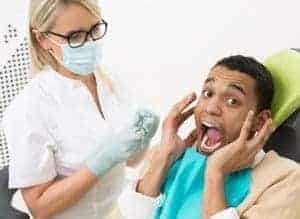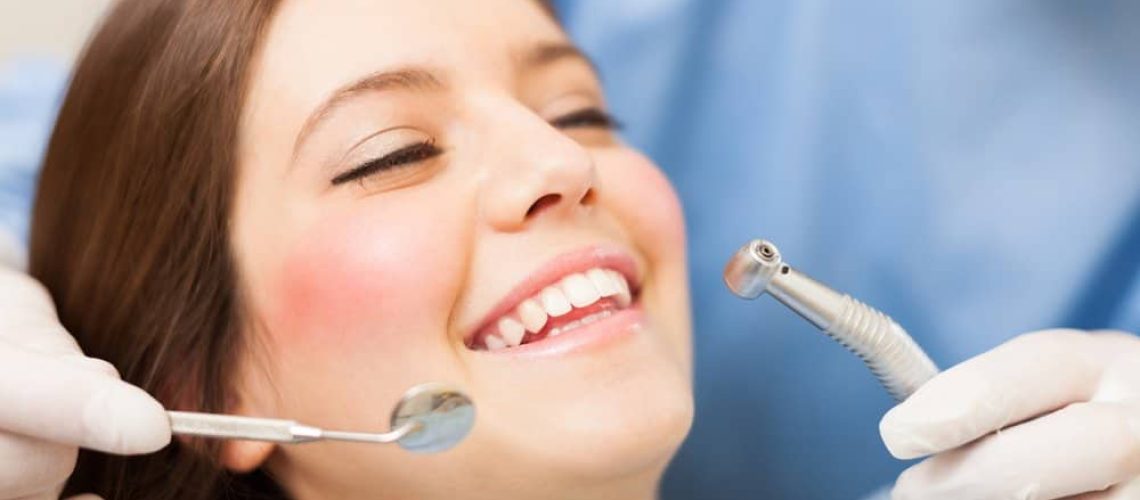Good health can range from eating a healthy diet to watching your calories and even making sure to keep your teeth and gums in good condition. When people think of good health, they probably think of a variety of different exercises and heart-healthy foods but what most people don’t realize is that good dentistry is just as important when keeping up with staying healthy.
Dentists: Who Are They and What do They do?

When you think of a doctor, you probably think of the doctor you go to see at a hospital or a medical clinic, but what a lot of people don’t quite know is that Dentists are doctors too. Dentists have their own special field called Oral Health, and like any other medical professional, they too have to attend medical school with vigorous training on their certain field. You might not take your teeth seriously but dentists do, and everything else that comes with it. While in most cases dentist appointments, cleanings, and checkups are pretty simple, even the simplest of procedures that are done carry potential risks of complications that can include infection, temporary or even permanent nerve damage, prolonged bleeding, hematomas, and pain. Dentists not only care for teeth but also the muscles of the head, neck and jaw, the tongue, salivary glands, the nervous system of the head and neck. During an oral exam, dentists will examine the teeth and gums, but they also look for lumps, discolorations, swellings, ulceration or any abnormality of any kind. In some cases, they can perform procedures like biopsies, diagnostic tests for infectious diseases, salivary gland function, and even screening tests for oral cancer.
A dentist is just as important as any other doctor, and your health and wellbeing are important to them. A list of responsibilities a dentist has or may have can include:
- Diagnosing oral diseases.
- Promoting oral health and disease prevention.
- Creating treatment plans to maintain or restore the oral health of their patients.
- Interpreting x-rays and diagnostic tests.
- Ensuring the safe administration of anesthetics.
- Monitoring growth and development of the teeth and jaws.
- Performing surgical procedures on the teeth, bone and soft tissues of the oral cavity.
What is a Dental Emergency vs a Normal Dental Issue?
It’s important to know the difference between a normal dental issue that can wait until morning and a real emergency that can threaten your health or cost you a tooth. To help you figure out if you can wait to be seen by your dentist or if you need to take a trip to the ER or an emergency dentist, ask yourself some of these questions:

- Are you in severe pain? Severe pain and bleeding can be signs of an emergency.
- Have you lost a tooth? Fast treatment can potentially save a tooth.
- Do you have loose teeth? Adults should never lose teeth. A loose tooth, even without pain, is a serious problem.
- Do you have an infection? An abscess or serious infection in your mouth can be potentially life-threatening, and you shouldn’t wait for treatment. You might notice swelling or knots on your gums or swelling around the face.
- Are you bleeding from the mouth? This might be a potential sign of an emergency.
Any dental problem that absolutely needs immediate treatment to stop bleeding, alleviate severe pain, a symptom that is life-threatening, or even save a tooth, is considered an emergency. Common dental problems are actually really common, and in most common dental problems can usually wait to see a dentist. Chipped or cracked tooth is an emergency if the fracture is very painful or has left sharp fragments that cause trauma inside your mouth. If the tooth is chipped but doesn’t hurt, you can wait to see your dentist. A toothache can also wait for treatment as long as the pain is not too severe and you don’t have symptoms of an abscess such as swelling of the face, bumps on the gums, or a high fever. If you’ve lost a crown or filling, you can likely wait a few days to see your dentist.
What are Dentures and How do I Know if I Need Them?
We’ve all probably seen a pair of dentures on tv or maybe your grandparents have a set of false teeth, but in most cases, most people have an idea of what dentures are.

Dentures, in general, are used for anyone who is missing some or all of their natural teeth and are having difficulty, eating, speaking and/or feeling embarrassed in social situations will profit from wearing dentures. In a stricter sense, if a person is missing some or as little as one of their natural teeth they are candidates for tooth replacements which are a type of denture. In the past, the false teeth that make-up dentures were generally made out of porcelain or plastic, but more modern dentures are generally made out of a hard resin. The materials used to make denture teeth are known to be a lot more fragile than your natural teeth and they can easily chip or crack if dropped or otherwise uncared for. The material for dentures also wears down a lot quicker than natural teeth and you’ll probably have to replace your dentures every few years.
What is Periodontal Disease?
Periodontal diseases are infections of the structures around the teeth, which include the gums, periodontal ligament and alveolar bone. In the earliest stage of periodontal disease, gingivitis, the infection affects the gums. In more severe forms of the disease, all of the tissues are involved. Bacterial plaque, a sticky, colorless membrane that develops over the surface of teeth, is the most common cause of periodontal disease. If plaque is not removed, it can harden to form tartar or calculus. While periodontal disease might sound scary, it can be prevented with good and healthy dental hygiene. The main aim of treatment is to clean out bacteria from the pockets around the teeth and prevent further destruction of bone and tissue.
If you are worried and unsure if you have periodontal disease, be on the lookout for some of these signs and symptoms:
- Inflamed or swollen gums and recurrent swelling in the gums
- Bright red, sometimes purple gums
- Pain when the gums are touched
- Receding gums, which make the teeth look longer
- Extra spaces appearing between the teeth
- Pus between the teeth and gums
- Bleeding when brushing teeth or flossing
- A metallic taste in the mouth
- Halitosis, or bad breath
- Loose teeth






